How to take care of your teeth and gums at home if you still can't get to the dentist
If your local dentist practice still hasn't opened yet, or you're shielding or in self-isolation, look to these at-home tips to protect your teeth
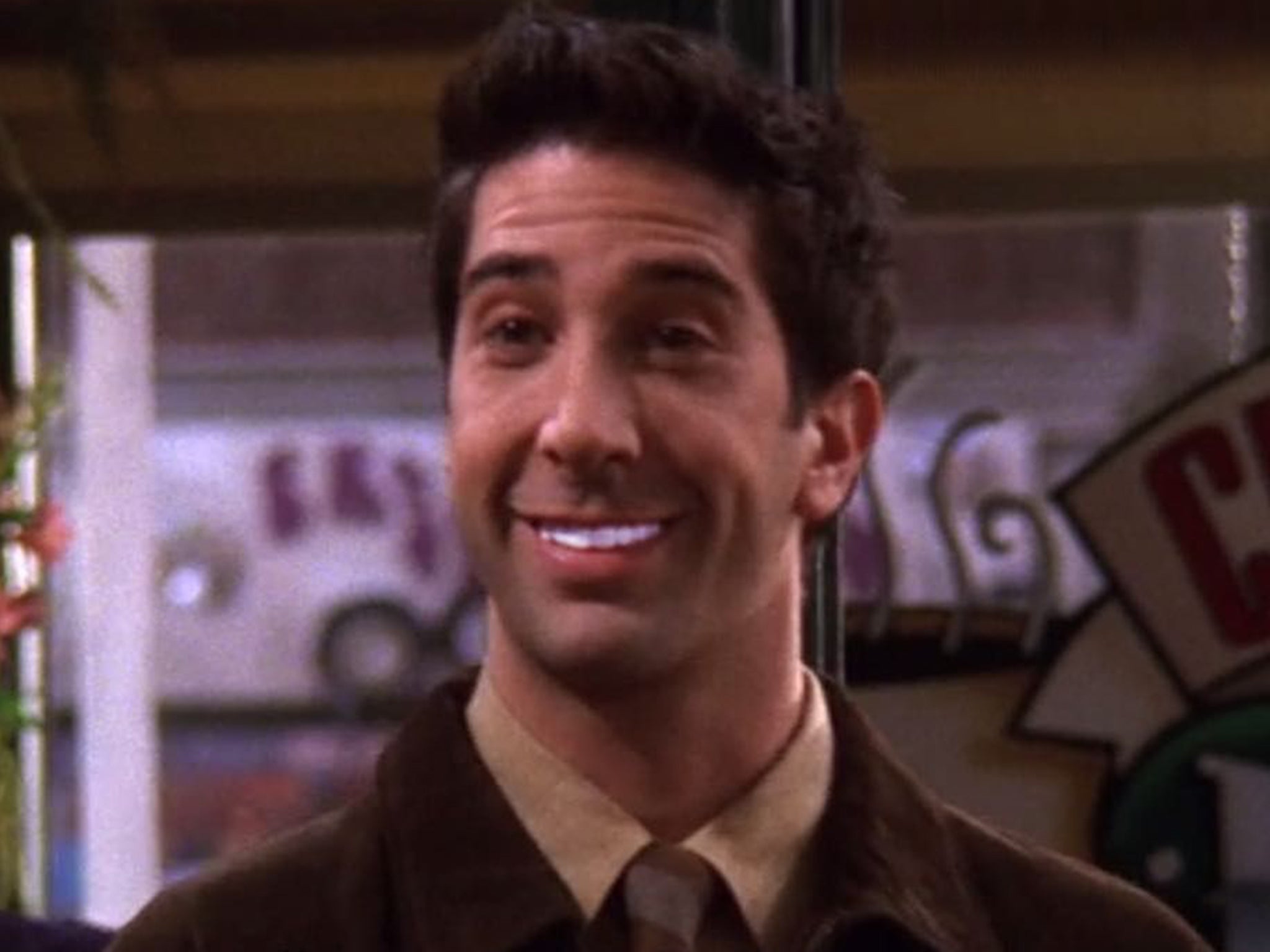
Your support helps us to tell the story
From reproductive rights to climate change to Big Tech, The Independent is on the ground when the story is developing. Whether it's investigating the financials of Elon Musk's pro-Trump PAC or producing our latest documentary, 'The A Word', which shines a light on the American women fighting for reproductive rights, we know how important it is to parse out the facts from the messaging.
At such a critical moment in US history, we need reporters on the ground. Your donation allows us to keep sending journalists to speak to both sides of the story.
The Independent is trusted by Americans across the entire political spectrum. And unlike many other quality news outlets, we choose not to lock Americans out of our reporting and analysis with paywalls. We believe quality journalism should be available to everyone, paid for by those who can afford it.
Your support makes all the difference.If you've been waiting for a dentist appointment during lockdown, the good news is that all private and NHS dental practices in England are now permitted to reopen from 8 June.
Although other businesses like garden centres reopened in May, dentists in the UK remained closed, as the chief dental officer in England Sara Hurley issued a "no change yet" statement on the subject of reopening dental practices.
But now Hurley has announced that practices can resume dental work, as long as the necessary infection prevention measures are in place.
Due to the strict measures that dental practices have to comply with before reopening, which include having sufficient PPE for staff, your local dentist may not have reopened yet, despite being permitted to.
You may also be shielding or in self-isolation, which means a trip to the dentist is still off the table. Instead we've come up with ways to look after your teeth and gums from home while you wait to be able to visit the dentist.
British Dental Association’s scientific adviser, professor Damien Walmsley, explains why it’s so important to prioritise your oral hygiene right now: “Preventing dental problems will put off more pressing problems in the future. Dental pain or discomfort is the result of previous poor diet choices such as excessive sugar or not brushing your teeth on a regular basis,” he says, adding, “making sure that you look after your oral health is part of keeping your overall health in tip top condition.”
Here are the at-home tools and tips to keep your teeth and gums in check.
You can trust our independent round-ups. We may earn commission from some of the retailers, but we never allow this to influence selections. This revenue helps us to fund journalism across The Independent.
Get into a good routine
Cosmetic dentist, Dr Uchenna Okoye, shares her top tip for dental hygiene, and it involves keeping things simple: “Stick to the basics brushing your teeth twice a day, and use interdental brushes to clean between teeth,” she says.
“The aim is to get rid of plaque bacteria that release toxins and cause damage.”
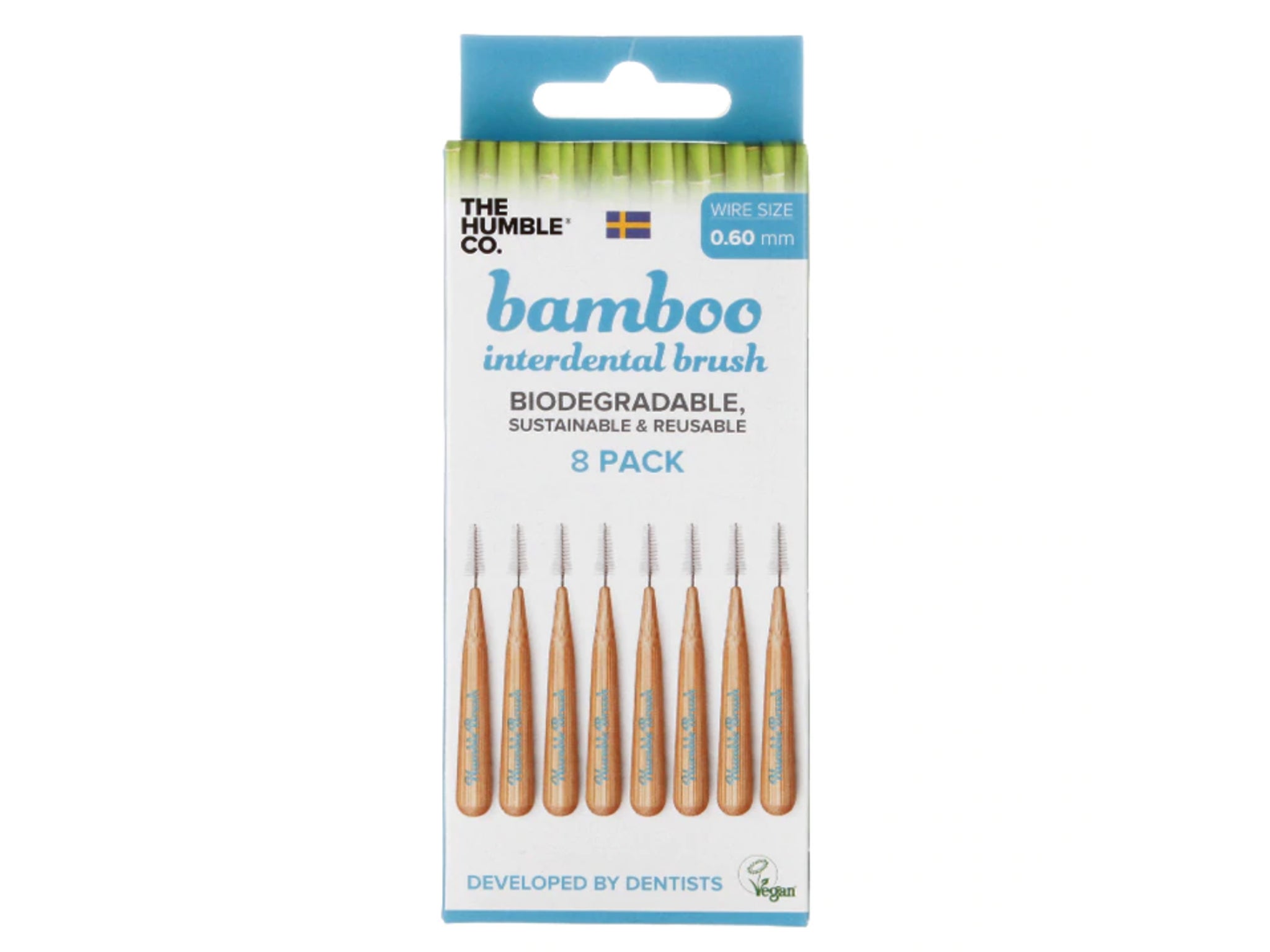
An interdental brush is smaller than a toothbrush and is designed to clean between your teeth, where a regular toothbrush wouldn’t normally reach.
These Humble bamboo interdental brush 0.7mm 8 pack (Holland & Barrett, £3.99) will do the job and they are eco-friendly too.
The best toothbrushes
Dr Okoye recommends using an electric toothbrush as they’re more efficient at cleaning your teeth.
In our guide to the best electric toothbrushes, we found the Philips sonicare protective clean 6100 (Amazon, £105.70) was the best for achieving pearly whites.
Our reviewer noted how quiet it is – almost silent, in fact – and that it’s high tech too, with three cleaning modes, a pressure sensor and a whole bunch of brush heads, which the toothbrush intuitively sets to the right mode when it senses which one you’ve attached. It has two controls – one to turn the toothbrush on and the other to select the mode – clean, white or gum care.
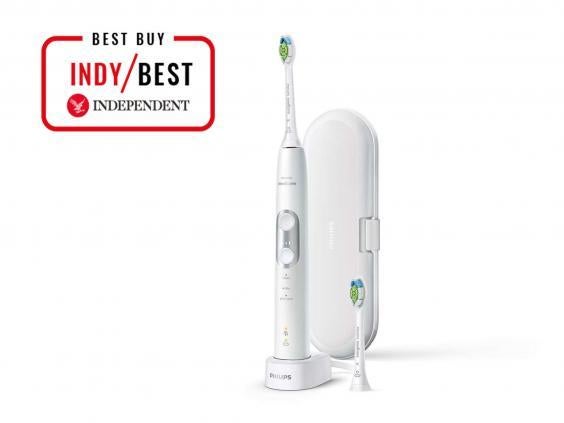
We love the fact that it builds up power over the first 14 uses to allow your gums to get used to the pressure, and that the heads and bristles have been cleverly designed to reach every part of your mouth and get right between your teeth – there’s even a pad for polishing and whitening. All this, together with the standard two-minute timer and 30-second pulse to signify when to move your brush, means you get clean teeth with barely any effort.
If you’re looking for a new toothbrush for children, in our IndyBest guide, we discovered the Fairywill electric toothbrush (Amazon, £15.99) was our favourite. It moves more plaque than a manual brush, retains charge for at least 21 days and there are three different settings/speeds to suit different dental needs. Professor Walmsley recommends to always supervise children under seven when toothbrushing.
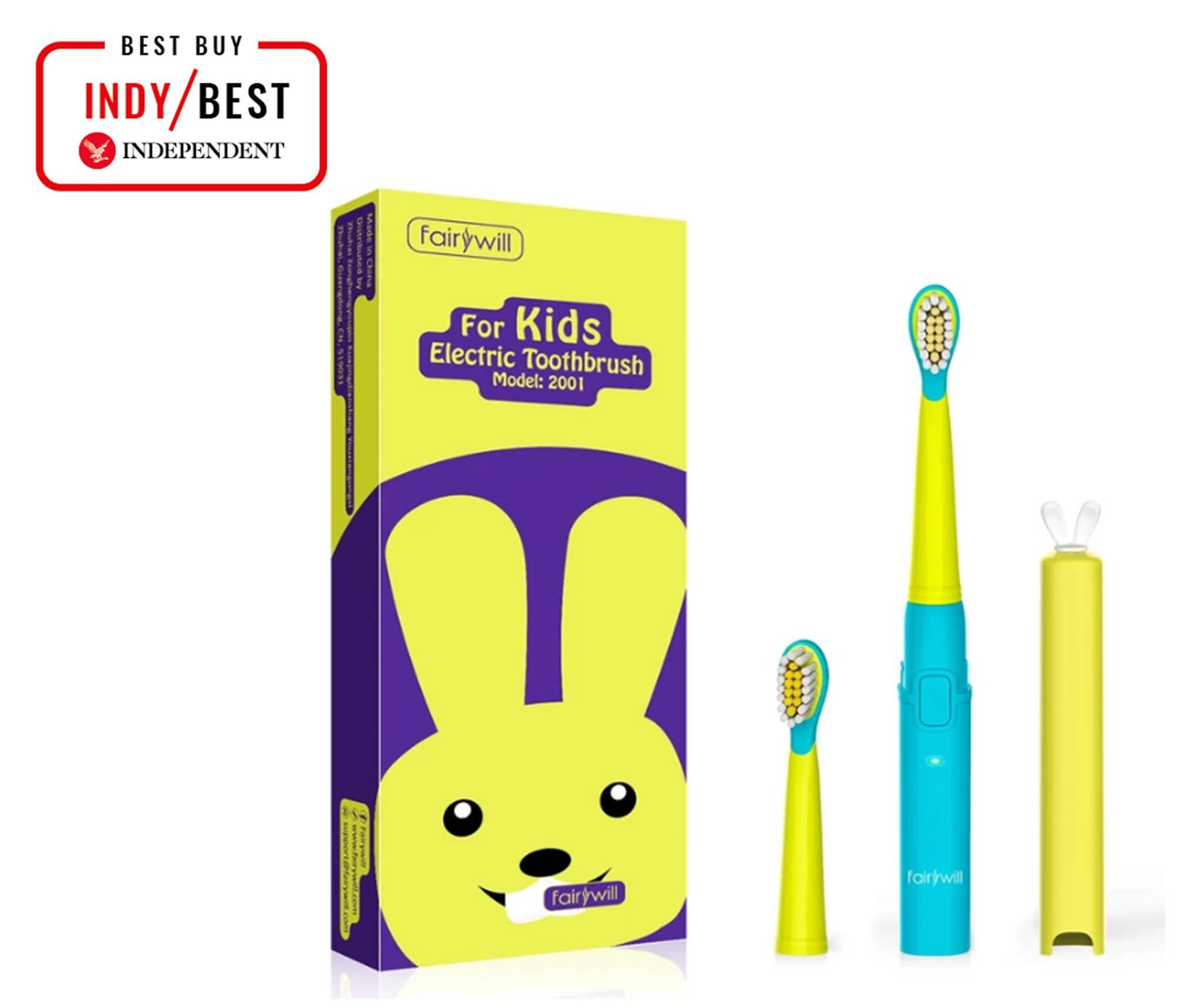
Common mistakes people make when brushing in the morning is to do so after eating breakfast, but according to Dr Okoye, it’s better to do it before you eat.
“Brushing after eating breakfast is the worst time as tooth enamel is softened by the effects of what you’ve eaten and then you brush away the vulnerable enamel,” she explains.
She goes on to advise that nighttime brushing is the most important as when you sleep, you produce the least amount of saliva, which protects your teeth.
Dr Okoye also recommends regularly disinfecting your brush by dipping it in a mouthwash, and if you don’t have any, boiling water is an alternative.
Find the right toothpaste
According to professor Walmsley: “Fluoride in the toothpaste is the important ingredient to prevent tooth decay."
Try the Oral-B pro expert professional protection toothpaste (Boots, £4), brushing your teeth for two minutes twice a day.
It’ll prevent plaque buildup, cavities, tartar and will help build up protection against sensitivities.
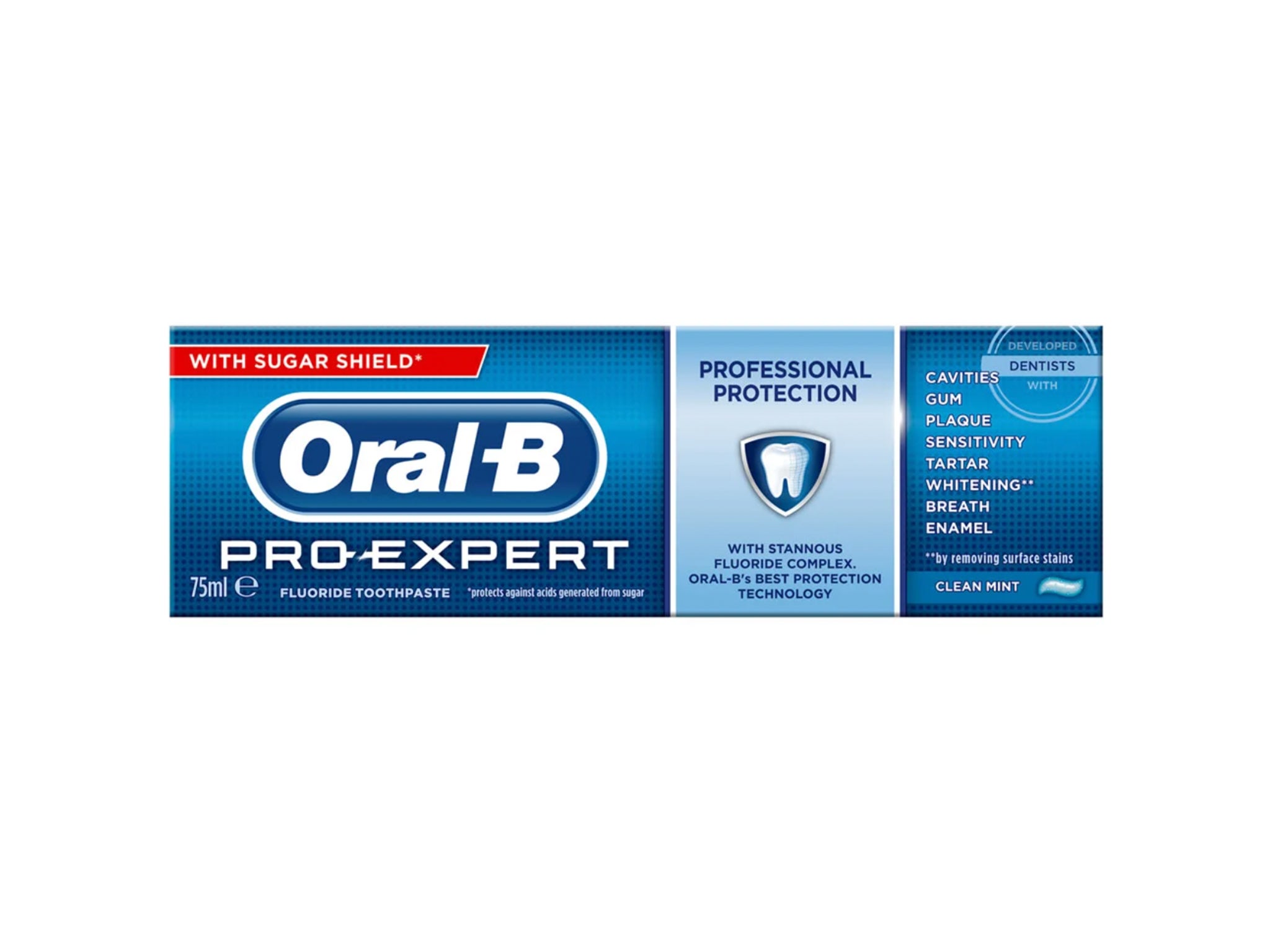
“A mouthwash isn’t essential (unless prescribed by your dental practitioner), but don’t neglect tooth brushing,” says professor Walmsley, who adds: "If you want to use a mouthwash, make sure to use it at a different time to brushing, otherwise you will rinse away the beneficial effect of fluoride in the toothpaste.”
The best teeth whitening kits
If you want a healthier-looking smile without a costly treatment that you couldn’t even book right now if you tried, try a DIY option at-home.
At-home kits aren’t allowed to contain more than 0.1 per cent hydrogen peroxide (the legal limit for dentist use is six per cent), so the reality is that you won’t see the same results at home as you would in a dentist’s chair.
However, if professional whitening is prohibitively expensive for you, the right at-home solutions can make some improvement.
We saw the best results from this Regenerate boosting serum set (LOOKFANTASTIC, £30) when used for three consecutive days, once a month.
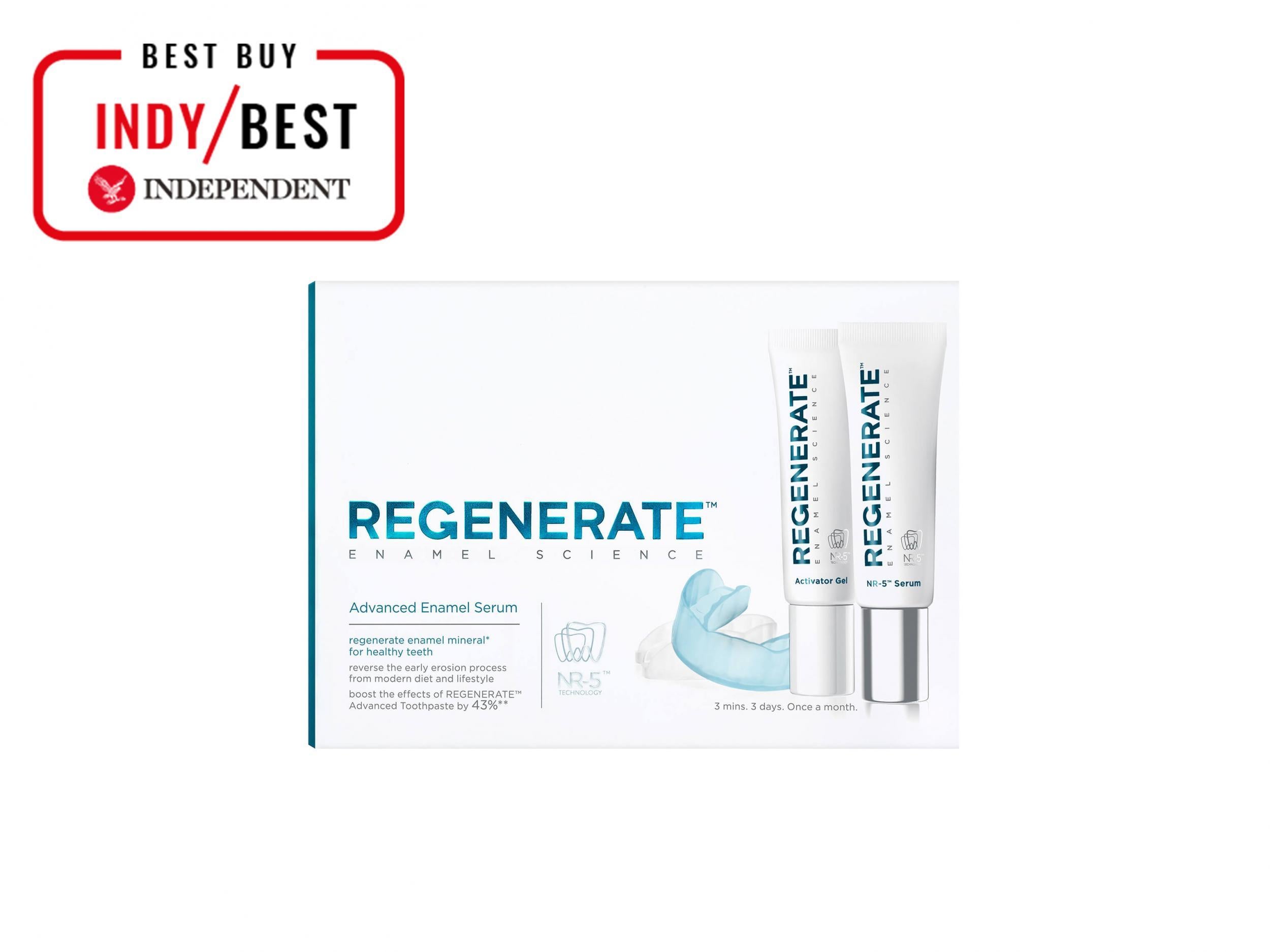
Teeth whitening is often associated with sensitivity and erosion, but Regenerate’s set helps to boost enamel regeneration and protect from further damage.
While it’s not marketed as a whitening product per se, our tester's teeth looked whiter and shinier after use, and sensitivity was reduced.
The kit includes two teeth trays – which we found far more comfortable than most – a serum and an activator, which are mixed together in the tray before use.
The best part is you only have to wear them for three minutes.
Cut down on sugary foods
Being at home means we’re snacking more than usual, but try to cut down on your sugar intake to help protect your pearly whites.
“Increased sugar consumption will lead to dental decay and also may cause other health problems so aim to reduce it,” says professor Walmsley.
Voucher codes
For the latest discounts on dental products, try the below links: